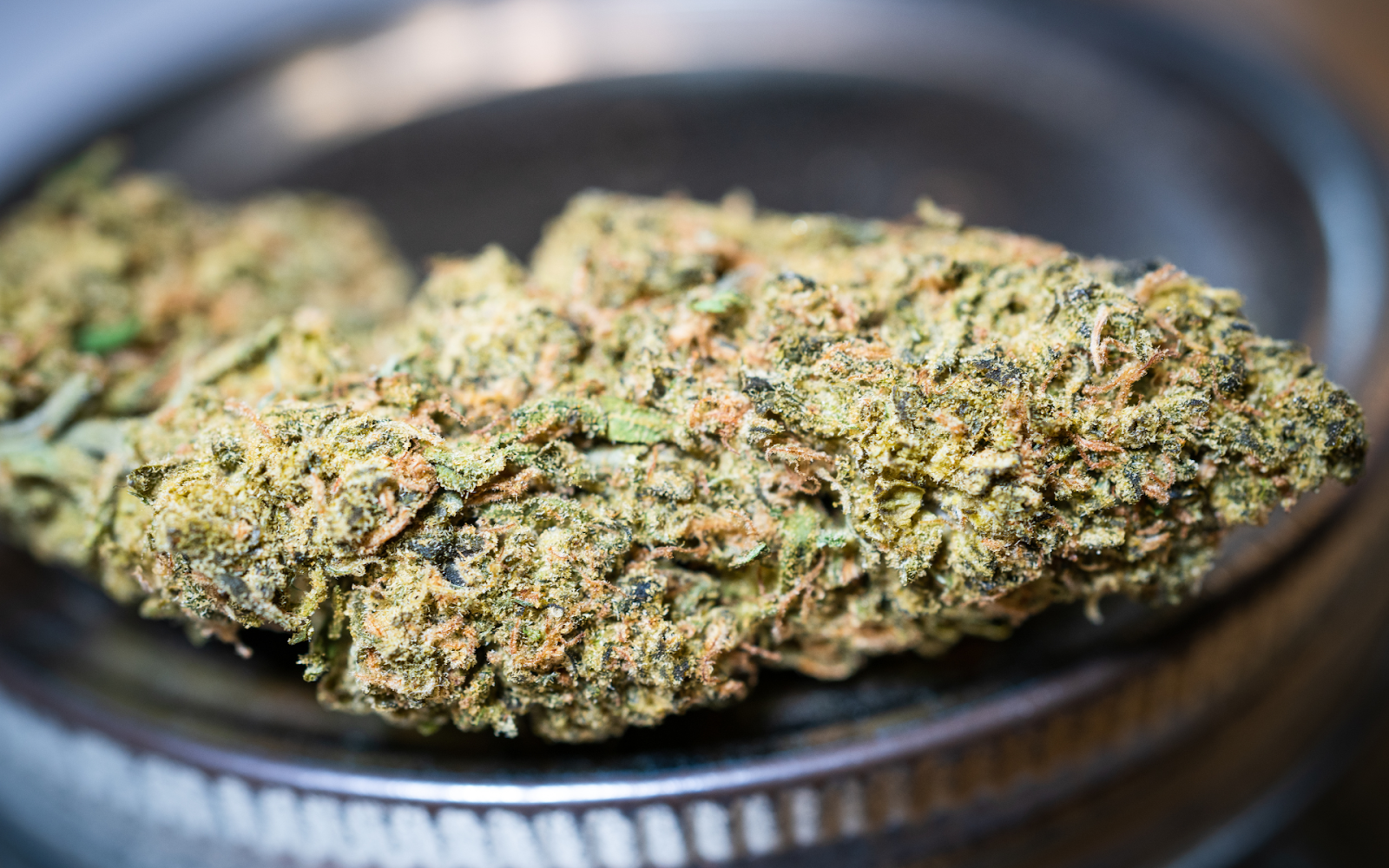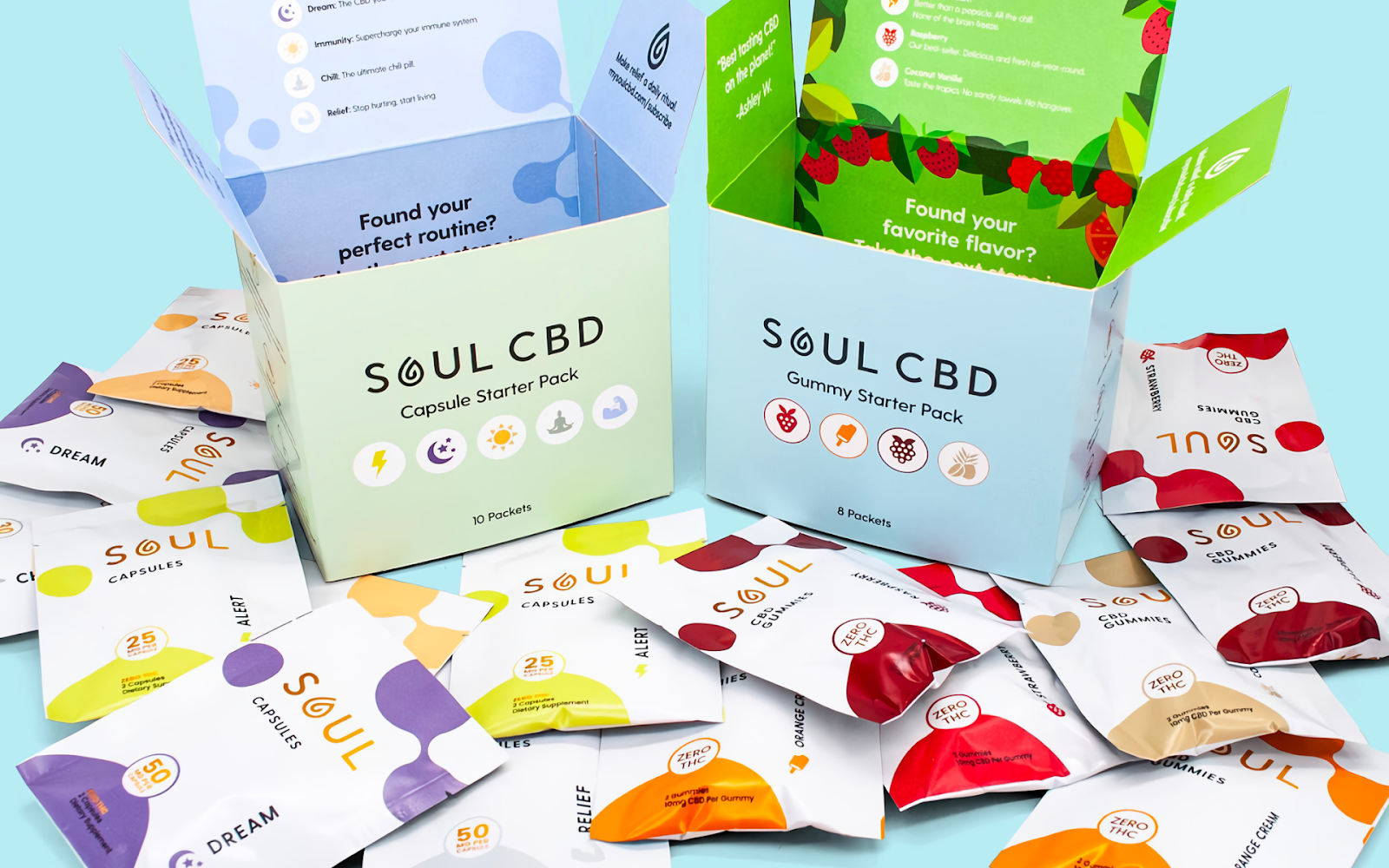The world of natural wellness solutions has seen an explosive growth in interest around cannabinoids, particularly Cannabidiol (CBD) and Delta 8 Tetrahydrocannabinol (Delta 8 THC). Both compounds offer unique benefits and effects that cater to various health and wellness needs. However, with their popularity comes a cloud of confusion and questions. What are the differences between CBD and Delta 8? How do they affect the body? And most importantly, which one is right for your specific health needs? This article aims to demystify these two compounds, highlighting their distinct effects, legal implications, and therapeutic benefits to guide you in making an informed decision.
Begin Your Transformation With Soul
Are You Ready for a Fresh Start? Step into SOUL – Your Journey to Complete Well-being Starts Now! |
Understanding CBD
What is CBD?
Cannabidiol, or CBD, is a naturally occurring compound found in the cannabis plant. Unlike its more famous cousin, THC (tetrahydrocannabinol), CBD does not produce a psychoactive effect, making it an appealing option for those seeking health benefits without the "high." Extracted primarily from hemp—a cannabis plant variety with low THC content—CBD is available in various forms, including oils, edibles, topicals, and capsules.
Benefits of CBD
- Anxiety and Stress Relief: CBD has been widely recognized for its calming properties, offering potential relief for those suffering from anxiety and stress. Studies suggest that CBD can interact with the body's endocannabinoid system to reduce anxiety levels and enhance mood.
- Pain Management: For chronic pain sufferers, CBD presents a natural alternative to traditional pain medication. By influencing endocannabinoid receptor activity, it can reduce inflammation and interact with neurotransmitters to alleviate pain.
- Sleep Improvement: CBD may also assist in improving sleep quality by addressing the root causes of insomnia, such as stress, anxiety, and pain.
Understanding Delta 8 THC
What is Delta 8 THC?
Delta 8 Tetrahydrocannabinol, commonly referred to as Delta 8 THC, is another cannabinoid found in cannabis plants, but in much smaller quantities compared to CBD and Delta 9 THC (the primary psychoactive compound in marijuana). Delta 8 THC is known for its psychoactive effects, though they are significantly milder than those of Delta 9 THC. This subtler psychoactive profile makes Delta 8 THC a middle ground for users seeking some of the euphoric effects of THC without the intensity associated with Delta 9.
Benefits of Delta 8 THC
- Mood Enhancement: Users often report a noticeable uplift in mood and a mild euphoria, making Delta 8 THC a popular choice for those looking to alleviate depression or simply enhance their overall well-being.
- Appetite Stimulation: Like Delta 9 THC, Delta 8 is also known to stimulate appetite, which can be beneficial for individuals facing loss of appetite due to various health conditions.
- Nausea Reduction: Delta 8 THC has been reported to help reduce nausea and vomiting, making it a potential aid for those undergoing treatments like chemotherapy that often result in such side effects.

Legal Implications And Availability
CBD Legal Status
CBD derived from hemp (cannabis plants with less than 0.3% THC) is federally legal in the United States under the 2018 Farm Bill. However, the legal landscape can vary significantly at the state level. While most states have embraced the federal stance, allowing the sale and use of hemp-derived CBD products, a few maintain stricter regulations. It's essential for consumers to familiarize themselves with their local laws before purchasing or using CBD products.
Delta 8 THC Legal Status
The legal status of Delta 8 THC is more complex and fluid. Although technically legal at the federal level if derived from hemp, the nuanced legal framework around THC and its analogs has led several states to explicitly ban Delta 8 products. This inconsistency means that the availability and legality of Delta 8 THC can vary widely, not just from state to state but also over time as legislatures and regulatory bodies update their policies.
Availability and Accessibility
The availability of CBD and Delta 8 THC products also depends on local laws, with some regions boasting a wide range of products in stores and online, and others having more restricted access. Consumers should also exercise caution and diligence in selecting reputable sources for these products, as the market's regulatory environment can lead to variability in product quality and labeling accuracy.
Comparing Therapeutic Benefits
CBD vs. Delta 8 for Anxiety and Stress
- CBD: Known for its calming effects, CBD interacts with the body's endocannabinoid system to reduce anxiety and stress without inducing a psychoactive high. This makes it a preferred choice for individuals seeking relief from anxiety, panic disorders, and general stress without compromising their mental clarity.
- Delta 8 THC: Delta 8 can also alleviate anxiety and stress, primarily through its mild psychoactive effects that promote a sense of well-being and relaxation. However, its psychoactive nature means it may not be suitable for everyone, especially those sensitive to THC's effects.
CBD vs. Delta 8 for Pain Relief
- CBD: CBD's anti-inflammatory and pain-relieving properties make it effective in managing chronic pain, arthritis, and muscle soreness. It offers a non-psychoactive alternative to traditional painkillers, with potential benefits for long-term pain management.
- Delta 8 THC: Similar to CBD, Delta 8 THC can also provide pain relief, but with the added effect of mild euphoria that may enhance its pain-relieving properties for some users. However, the psychoactive effects require careful consideration of dosage and individual tolerance.
CBD vs. Delta 8 for Sleep Disorders
- CBD: By addressing the underlying causes of insomnia, such as anxiety and pain, CBD can help improve sleep quality. It's a popular choice for those looking to enhance their sleep without the psychoactive effects associated with THC.
- Delta 8 THC: Delta 8's mild psychoactive effects may aid in promoting relaxation and sleep for individuals who find THC's effects beneficial for sleep. However, the potential for psychoactivity means it's not the right choice for everyone, particularly those who may react negatively to THC.

How To Choose Between CBD And Delta 8
Choosing between CBD and Delta 8 THC depends on individual health goals, sensitivity to THC, and legal considerations in one's area. For those seeking non-psychoactive relief from anxiety, pain, or sleep issues, CBD may be the preferable option. Meanwhile, individuals looking for mild psychoactive effects alongside therapeutic benefits might find Delta 8 THC more suitable.
Before trying either compound, it's crucial to consult with a healthcare professional, especially for those with pre-existing health conditions or taking other medications. Understanding personal health needs and legal constraints is key to selecting the right cannabinoid for wellness.
Final Thoughts
Choosing between CBD and Delta 8 THC depends on personal health goals, legal considerations, and individual reactions to THC. CBD is ideal for those seeking relief from anxiety, pain, and sleep issues without experiencing psychoactive effects. Its legal status is generally clear under federal law, making it accessible in most states. Delta 8 THC, offering milder psychoactive effects, may appeal to those who benefit from THC's mood-enhancing properties but want less intensity than Delta 9 THC.
Consulting with a healthcare professional is crucial before incorporating either compound into your health regimen, especially if you have pre-existing conditions or are taking medications. Always stay informed about the legal status of these compounds in your area and prioritize products from reputable sources, such as SOUL's Wellness Products, designed to enhance your holistic health journey.
Frequently Asked Questions About CBD And Delta 8
Can CBD or Delta 8 THC affect my mental health?
CBD is generally considered beneficial for mental health, particularly for anxiety and depression, due to its calming effects. Delta 8 THC may also improve mood but its psychoactive properties require careful use, especially among those with pre-existing mental health conditions.
Are CBD and Delta 8 THC products safe for pets?
CBD products specifically formulated for pets are widely regarded as safe and can help with anxiety, pain, and seizures. However, Delta 8 THC is not recommended for pets due to its psychoactive effects.
How do CBD and Delta 8 THC interact with other medications?
Both compounds can interact with other medications by affecting how the body processes them, potentially leading to increased side effects or reduced effectiveness. Consulting a healthcare provider before combining them with other medications is essential.
What is the shelf life of CBD and Delta 8 THC products?
Typically, CBD and Delta 8 THC products have a shelf life of 1-2 years if stored properly in a cool, dark place. The potency and quality may decline over time.
Can CBD or Delta 8 THC help with weight loss?
There is anecdotal evidence that CBD may help with weight loss by reducing appetite and boosting metabolism. Delta 8 THC, conversely, is known to stimulate appetite, which might not be beneficial for weight loss goals.
Is it possible to develop a tolerance to CBD or Delta 8 THC?
Tolerance to Delta 8 THC can develop with regular use, potentially requiring higher doses to achieve the same effects. CBD does not typically lead to tolerance, but its effects may become more noticeable over time as the body's endocannabinoid system becomes more balanced.
How are CBD and Delta 8 THC extracted from the cannabis plant?
CBD and Delta 8 THC are extracted using various methods, including CO2 extraction, ethanol extraction, and solvent-free extraction. The method used can affect the purity and potency of the final product.
Can CBD or Delta 8 THC improve athletic performance?
CBD may aid in recovery by reducing inflammation and pain, potentially improving athletic performance indirectly. Delta 8 THC's effects on performance are less clear, and its psychoactive properties may impair coordination and focus.
Sources:
- Singh, K., Bhushan, B., Dilip Kumar Chanchal, Satish Kumar Sharma, Rani, K., Manoj Kumar Yadav, Prateek Porwal, Kumar, S., Sharma, A., Virmani, T., Kumar, G., & Abdullah Al Noman. (2023). Emerging Therapeutic Potential of Cannabidiol (CBD) in Neurological Disorders: A Comprehensive Review. Behavioural Neurology, 2023, 1–17. https://doi.org/10.1155/2023/8825358
- Kruger, D. J., & Kruger, J. S. (2021). Consumer Experiences with Delta-8-THC: Medical Use, Pharmaceutical Substitution, and Comparisons with Delta-9-THC. Cannabis and Cannabinoid Research. https://doi.org/10.1089/can.2021.0124
- LoParco, C., Rossheim, M. E., Walters, S. T., Zhou, Z., Olsson, S., & Sussman, S. Y. (2023). Delta‐8 tetrahydrocannabinol: a scoping review and commentary. https://doi.org/10.1111/add.16142




